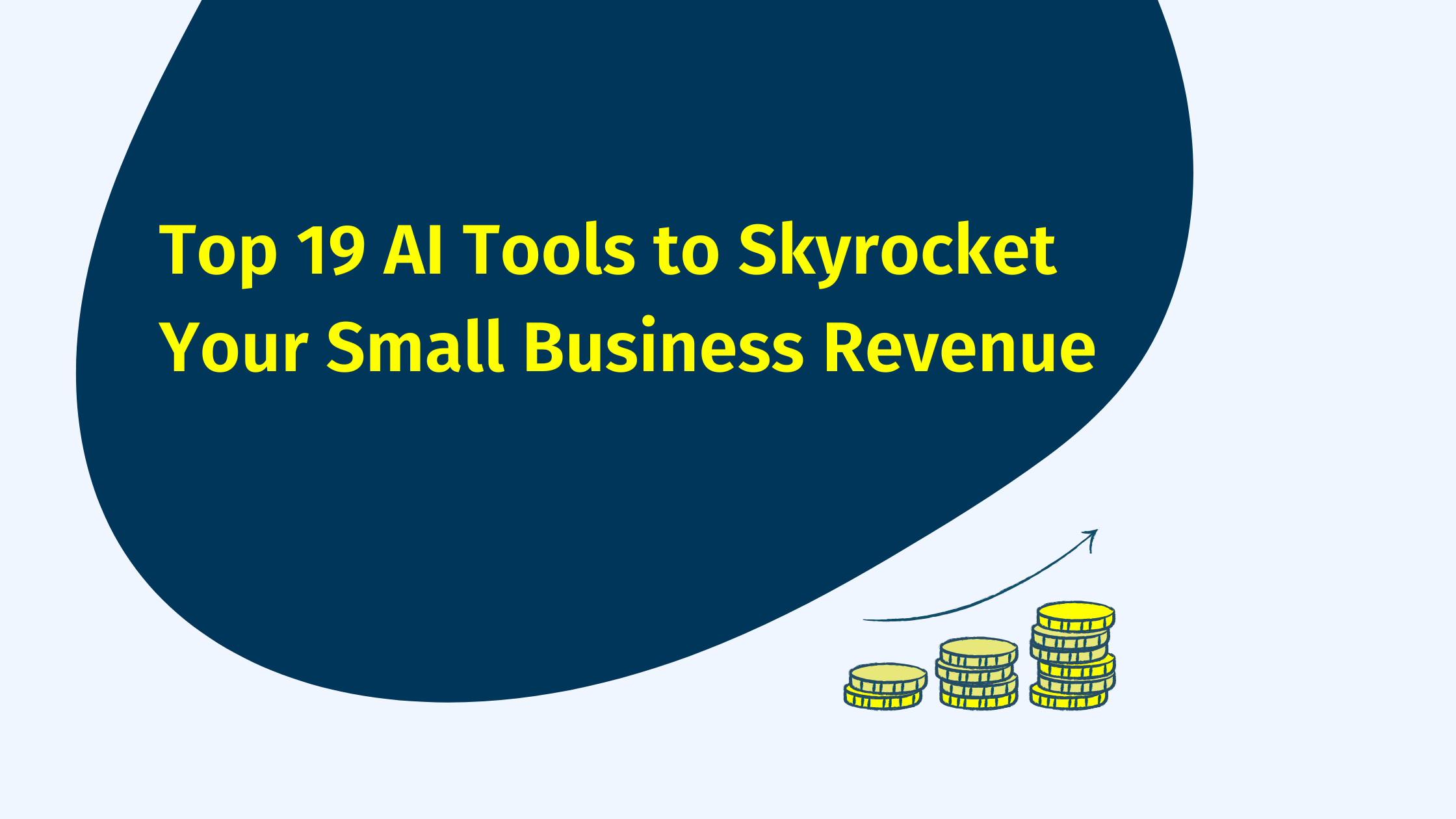Beyond Rankings: The Role of AI in Crafting SEO Strategies That Elevate Customer Experience
If you run a business that has had at least a bit of an online presence for the last year, you’ve been hearing that AI is about to change SEO forever. While Google’s Generative Search Experience or Gemini probably won’t kill traditional SEO, other AI tools can influence it quite a bit right now.
With the use of AI and SEO strategies, you can make better strategies that can get your pages to rank higher on the search results pages and improve customer experience. How are these two tied together? How can AI help improve them?
This article will explain both of these questions in more detail.
Collaboration Between SEO and Customer Experience
Meeting consumer expectations of customer experience is becoming harder and harder. But, satisfied customers are willing to pay more and promote businesses that meet their needs. So, the investment pays off in the end.
Search engine optimization is typically thought of as a marketing channel that can attract traffic and generate leads, but it can also greatly contribute to CX. As half of website traffic tends to come from organic search, SEO is likely to be the first interaction with your brand for half of your potential customers.
How you present your company in that interaction can be crucial both for the beginning of the customer experience and for forming the attitude towards your brand as a whole.
AI as an Indispensable Solution for the Digital Landscape
Artificial intelligence has become a part of the digital landscape, from generating images for fun to boosting data analytics with AI-based BI tools. AI is much more than chatbots or text generation. Its most indispensable use is in data analytics.
While the process of extracting, transforming, and loading data is largely a manual process that requires a lot of human intervention, more and more analytical tools rely on AI to produce better results. The reason for that is that AI is much better at finding patterns in seemingly random huge amounts of data, as it streamlines data mining and looks for insights.
Conversational AI can also streamline customer service operations by providing a convenient way to get answers to frequently asked questions that don’t need attention from a CS representative.
SEO is no exception, and there are multiple ways you can use AI for SEO. Below are the most important ones.
The Role of AI in SEO Strategies for Better Customer Experience
SEO is a complex digital marketing discipline, and not all of its practices and techniques can be automated or augmented with AI. These six components, however, can benefit greatly from introducing AI for SEO.
Keyword research
Generative AI is only one of the few aspects of AI that can help SEO. AI’s ability to analyze large sets of data provides a lot more benefits. For instance, in keyword research.
Keyword research is the primary task of any SEO campaign. It’s also one of the most labor-intensive parts of SEO as you have to sift through thousands of keywords, figure out how they are related, understand the user intent behind the keywords, and group them together to fit specific pages on your website.
Understanding search intent and answering it within the page that you optimize for the keyword is crucial for CX. When a user types in a keyword with the intent to, say, find an instruction that solves their problem, and only finds a glorified ad that adds no value, they’re going to be frustrated.
But when they see a page that is exactly what they were looking for, that’s going to be the first positive interaction with your brand.
AI can help keyword research in many ways. AI-powered SEO tools can analyze search engine results pages for your target keywords and analyze the search intent. This saves your SEO team tens of hours of manually browsing the SERP.
As using AI doesn’t promise incredible instant results, it’s necessary to monitor the positions of your keywords to spot any positive or negative changes and adapt your SEO strategy accordingly. Tools like the SE Ranking rank tracker help identify any changes in rankings of any region to react faster, so you can understand if your optimization efforts based on AI and user insights are being made properly and if your content is engaging and relevant over time.
Content creation
One aspect where AI technology can help content marketing is already covered above — it helps you understand user intent. Tailoring your content to the user intent behind the keyword is crucial for both drawing in traffic and improving the initial customer experience.
Tools that use AI for content creation can also analyze competing articles in the SERP and show you a collection of headings that are most used in high-ranking content. Keyword tools analyze the competing pages in even more depth, giving you more insight into their content strategy.
They will compare the pages to find the keywords that appear the most on them and suggest how many keywords you should put in a piece of content, and what questions to answer. AI can also help with natural language processing SEO.
Natural language processing, or NLP, is the basis of one of Google’s newest ranking systems, BERT. It uses AI to understand the context of the text it analyses and get a deeper insight into search intent.
AI tools can help you understand search intent, too, and they can find NLP keywords. Those are short keywords that don’t bring in traffic but are used by the search engine to understand the context of the text and its topic.
For instance, it would make sense if an article about AI in customer support included mentions of chatbots, CMS systems, or ticketing, as all of these words relate to customer support. Google is likely looking for those keywords, and including them might improve your SEO.
And you can’t go around it — AI for SEO tools helps tremendously in creating content. It won’t completely write a well-researched article, but it can be of great help in creating content ideas, writing the first draft, or rewriting old SEO content.
Website Performance and Speed
Website speed is another aspect of SEO that influences CX greatly. A fast-loading website that provides a seamless experience to users serves as a ranking signal for search algorithms and leaves a good impression on users.
AI for SEO can help achieve good website performance in a minor way by automatically compressing images that are too big to load well. AI-based systems can also create dynamic content suggestions that are personalized to the user to make sure they have a good experience on the site.
But the largest thing AI can contribute to improving website performance is refactoring JavaScript or PHP code. Poorly written code may delay pages from loading. You can use any chat AI to rewrite the code to work faster.
Google voice search
Customer experience is all about giving your customers as many different options for interacting with your brand as possible. One of those options in SEO is voice search — 62% of US adults use it either frequently or sometimes.
Since voice search queries are typically phrased as questions, it’s hard to find those keyword opportunities. AI software can help you with voice search optimization by finding those keywords and providing suggestions on how to optimize content for them.
AI can also generate Speakable structured data to help you appear for voice searches and make your website more accessible. Structured data documents are hard to create by hand and AI tools are perfect for those who don’t have coding skills.

An AI chatbot can create a document for you and give you instructions on how to use it.
Chatbots and sentiment analysis
AI chatbots increase conversions by 23% and decrease the load on customer support teams. These chatbots also contain a wealth of knowledge about your customers. If you keep logs of customer interactions with chatbots or with sales reps in the CMS, you can connect an AI tool to do sentiment analysis.
Sentiment analysis can be even better than NPS or CSAT at determining what customers think about your business.
You can also use data from chatbots to find out what the most frequently asked questions are and perhaps change your workflows and systems to solve problems. You can also use this information to come up with ideas for keywords or SEO content.
Predictive analytics of user behavior and search engines
A more advanced technique that AI can help with is predictive analytics. AI-based tools can help with predicting search trends in keyword rankings and website authority and give you a better idea of how to change your approach to keep your high ranking in the future.
You can also use data on user actions on your website to predict behavior trends and improve website UX with the help of machine learning and AI tools.
How does AI Impact SEO & Customer Service Metrics?
There are two main ways artificial intelligence can help both SEO and customer service metrics.
In terms of meeting SEO goals, AI tech can help with multiple aspects of optimizing your site and can ultimately lead to an increase in the two most important things in SEO — ranking for important keywords and traffic that is likely to convert.
In terms of customer experience, optimizing pages to fit the search intent ensures that users are satisfied with what they click on, and as a result, the bounce rate goes down. This is good for both customer experience and SEO.
Analyzing customer behavior on the website with AI tools doesn’t just help with the top of the marketing funnel, it helps to improve customer retention as well.
The biggest benefit of AI for SEO is that it lets you do SEO at scale. It can streamline and improve workflows that had to be done manually before. Of course, they will still need human attention, but it can be done much faster than usual.
AI Tools are the Future of SEO
SEO and customer experience can influence each other, and AI tools can improve both business areas a lot.
Use SEO tools with AI capabilities to get a better analysis of search intent and AI writing assistants to create content that both ranks well on the SERP and creates a satisfying customer experience.
If you have the resources, try using AI tools to analyze large sets of SEO data, customer experience data, and website usage data to get even more insights that help make CX better.







